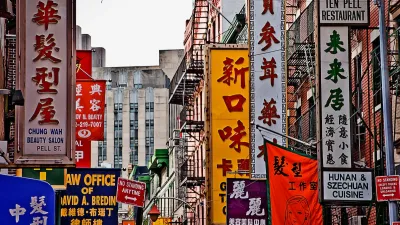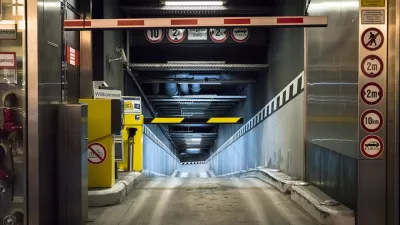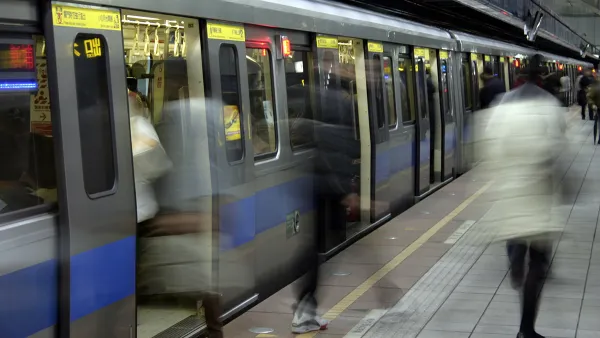With her Foodprint project, Nicola Twilley wondered what one could learn about a city by looking at it through the lens of food. In this piece on Urban Omnibus she shares what she's learned.
Through two events -- one in New York and another in Toronto -- Twilley and co-organizer Sarah Rich invited speakers and eperts to discuss how food shapes the urban environment and how urban policies can be improved to reshape the food systems that feed our cities.
"Many extraordinary and peculiar factoids, certainly: enough to keep us well-stocked at dinner parties for years to come. Toronto, for example, is the second largest urban food processing hub in North America (after Chicago) and its food factories still occasionally overwhelm certain neighborhoods with the smell of roasting coffee beans, freshly-slaughtered beef, or potato and leek soup. We also learned that turning just 10% of NYC's private backyards over to urban agriculture would produce 113 million lbs of vegetables each year, or enough to feed 700,000 people at current rates of consumption.
We have also confirmed one of the Foodprint Project's founding premises: the best food conversations are hyper-interdisciplinary. As Nevin Cohen, urban planner and panelist at Foodprint NYC, put it, "Food is a social justice issue and a public health issue; it's also an economic development issue, it's a transportation issue, it's a regional planning issue, it's an ecological issue." By inviting panelists whose work engages deeply with the city's food systems, but who come from widely differing perspectives - such as a First Nations fisherman, a food scientist working to redesign salt crystals, an architect using urban agriculture to retrofit ‘60s tower blocks, and the health official in charge of drafting Toronto's first city-wide food policy - we've created new connections, both personal and conceptual."
FULL STORY: Foodprint City

Maui's Vacation Rental Debate Turns Ugly
Verbal attacks, misinformation campaigns and fistfights plague a high-stakes debate to convert thousands of vacation rentals into long-term housing.

Planetizen Federal Action Tracker
A weekly monitor of how Trump’s orders and actions are impacting planners and planning in America.

In Urban Planning, AI Prompting Could be the New Design Thinking
Creativity has long been key to great urban design. What if we see AI as our new creative partner?

King County Supportive Housing Program Offers Hope for Unhoused Residents
The county is taking a ‘Housing First’ approach that prioritizes getting people into housing, then offering wraparound supportive services.

Researchers Use AI to Get Clearer Picture of US Housing
Analysts are using artificial intelligence to supercharge their research by allowing them to comb through data faster. Though these AI tools can be error prone, they save time and housing researchers are optimistic about the future.

Making Shared Micromobility More Inclusive
Cities and shared mobility system operators can do more to include people with disabilities in planning and operations, per a new report.
Urban Design for Planners 1: Software Tools
This six-course series explores essential urban design concepts using open source software and equips planners with the tools they need to participate fully in the urban design process.
Planning for Universal Design
Learn the tools for implementing Universal Design in planning regulations.
planning NEXT
Appalachian Highlands Housing Partners
Mpact (founded as Rail~Volution)
City of Camden Redevelopment Agency
City of Astoria
City of Portland
City of Laramie





























